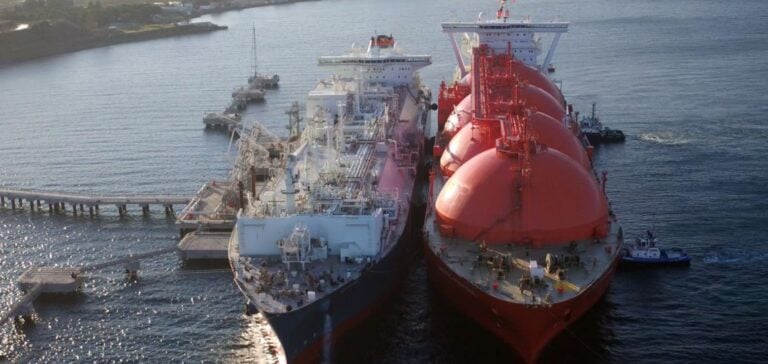Lithuania, a small Baltic country, has taken a significant step in its quest for energy independence. Last Friday, in the port of Klaipėda, the national flag was raised on the floating liquefied natural gas (LNG) terminal named *Independence*. This acquisition, completed for €138 million, follows a decade of operation under a lease agreement with the Norwegian company Hoegh LNG.
Since its launch in 2014, the terminal has played a pivotal role in the country’s energy supply. With an import capacity of four billion cubic meters per year, it far exceeds Lithuania’s domestic needs and enables surplus delivery to neighboring countries such as Latvia, Estonia, Poland, and, more recently, Finland. Over ten years, this partnership cost Vilnius $689 million in lease fees.
A legacy of dependency transformed
Lithuania’s dependency on Russian gas has deep roots, stemming from the Soviet era, when the country relied exclusively on Moscow for its energy needs. Since joining the European Union (EU) and the North Atlantic Treaty Organization (NATO) in 2004, Lithuania has embarked on ambitious reforms to diversify its energy sources. The *Independence* terminal symbolizes this transformation, offering a tangible alternative to the economic and political pressures exerted by Russia.
This advancement is not isolated. In 2022, Lithuania and Poland commissioned a gas pipeline linking the two countries, further strengthening regional interconnections and reducing vulnerability to Russian suppliers.
A regional symbol of resilience
During the ceremony marking the purchase, Lithuanian President Gitanas Nausėda described the event as “the end of Russian monopoly and political blackmail.” Alongside his Baltic and Polish counterparts, he emphasized the significance of this acquisition for regional energy security. Poland, in particular, has also diversified its gas imports through its own LNG terminal in Świnoujście.
By bolstering its infrastructure, Lithuania also contributes to the energy stability of its Baltic partners, enhancing the region’s economic and strategic integration. The acquisition of the *Independence* terminal thus represents an important step toward greater energy autonomy in a region where geopolitical challenges remain prominent.





















